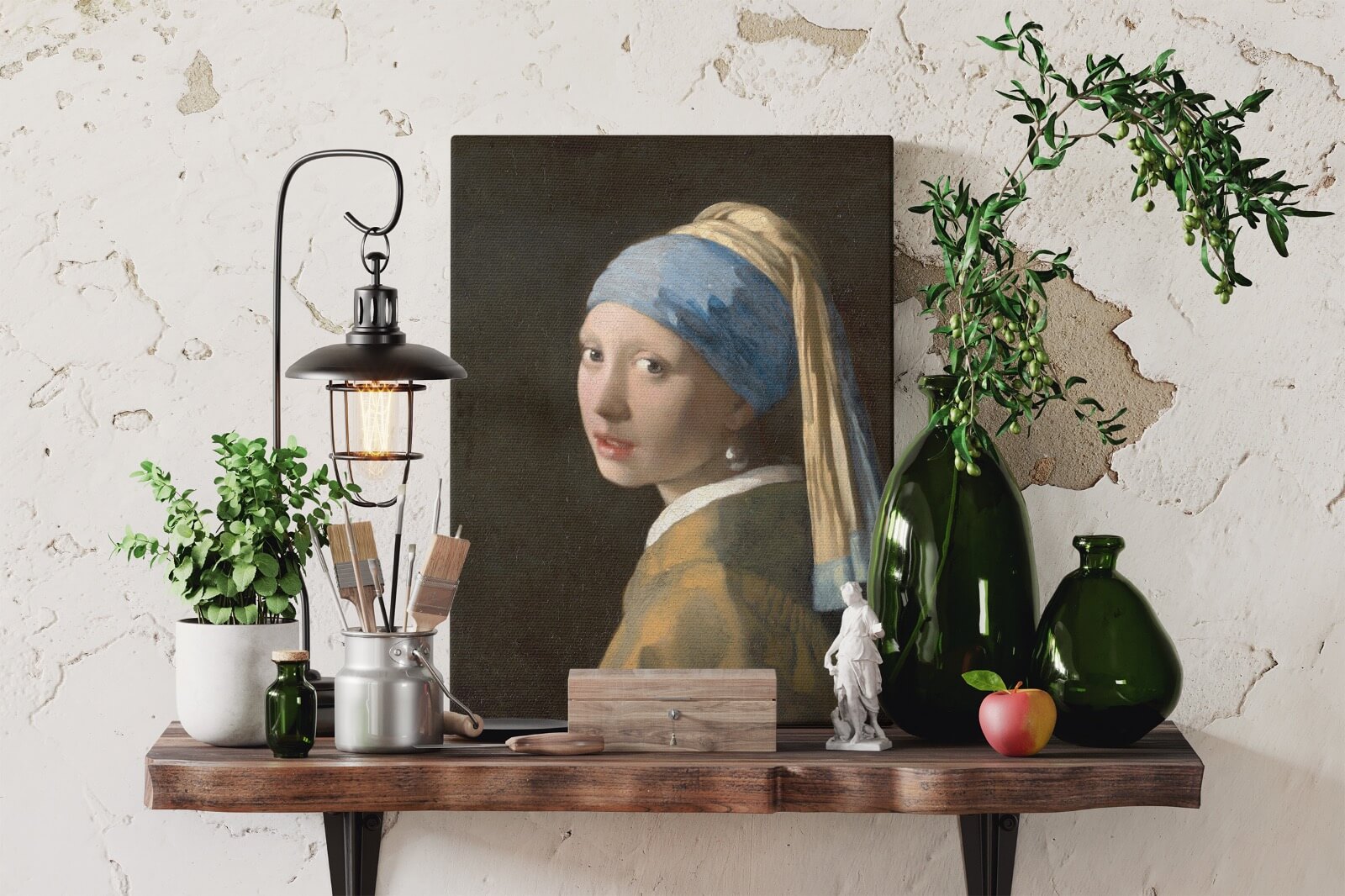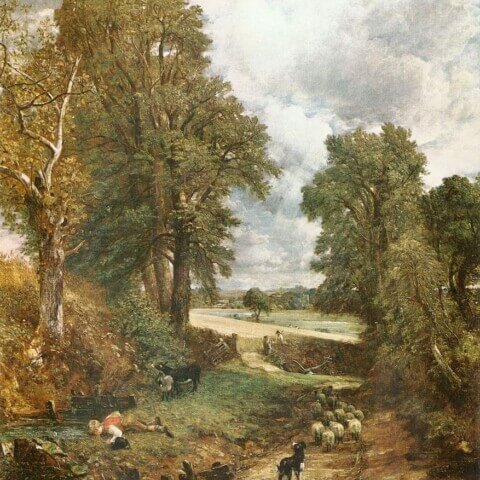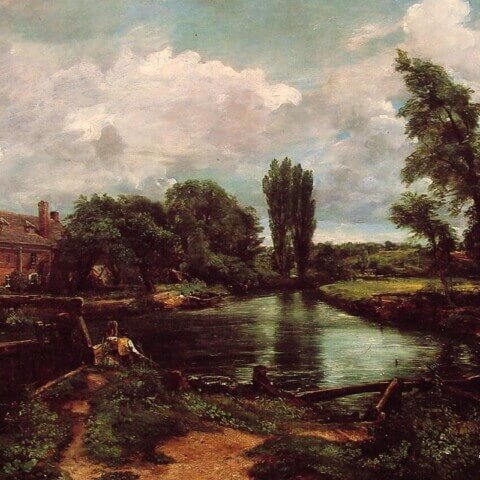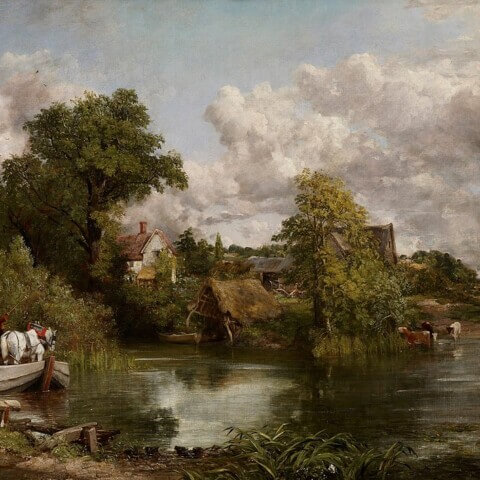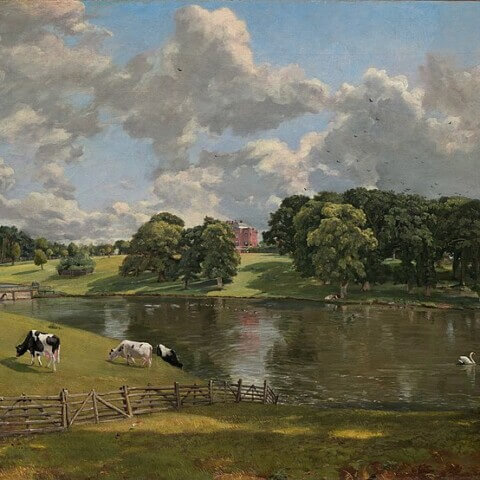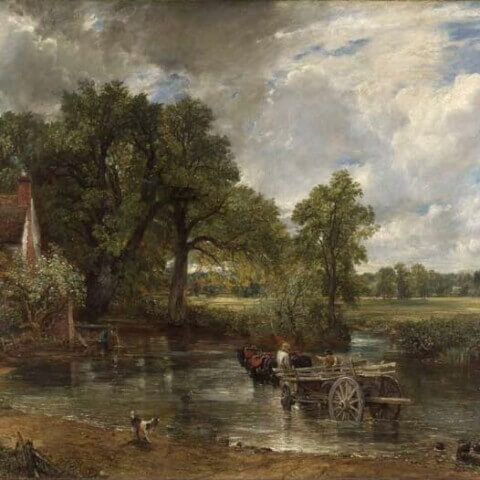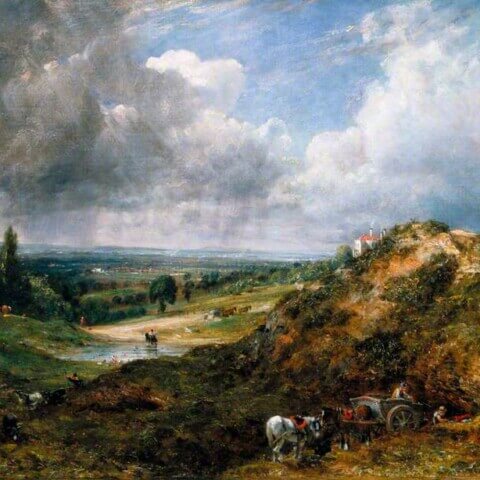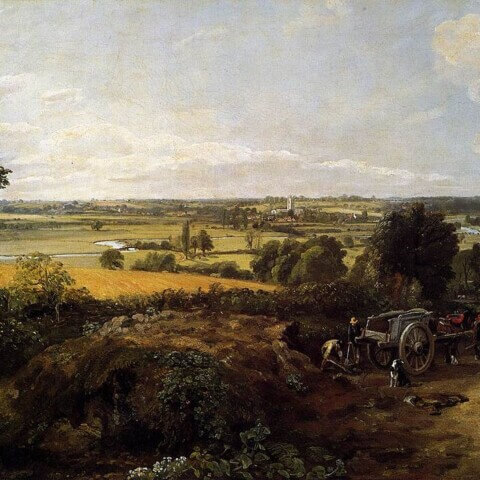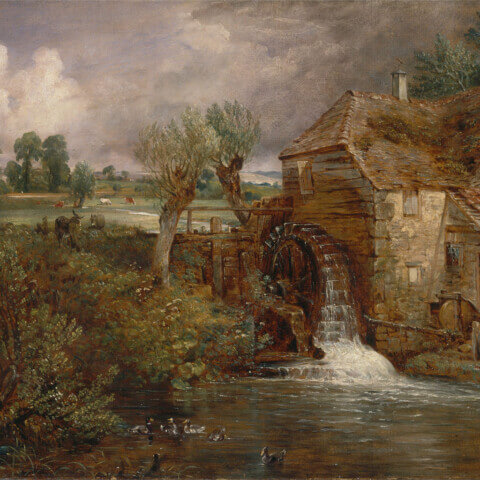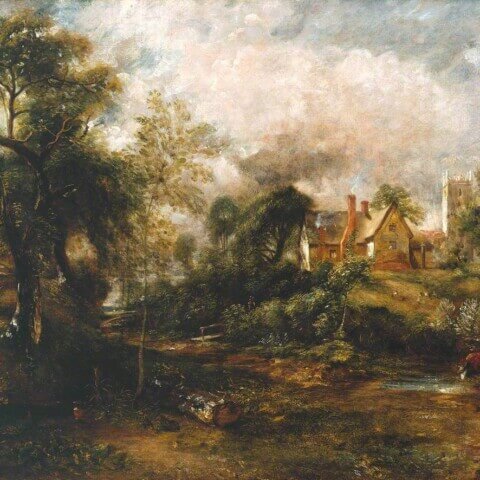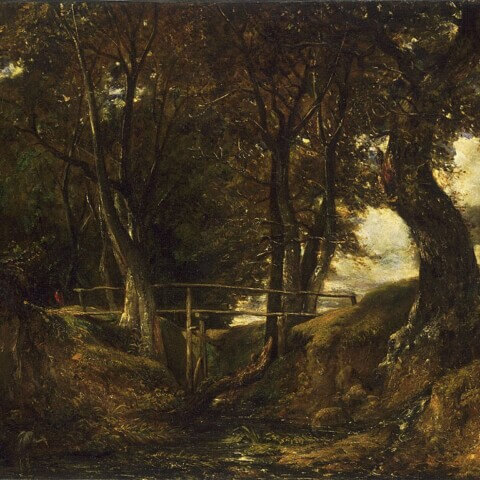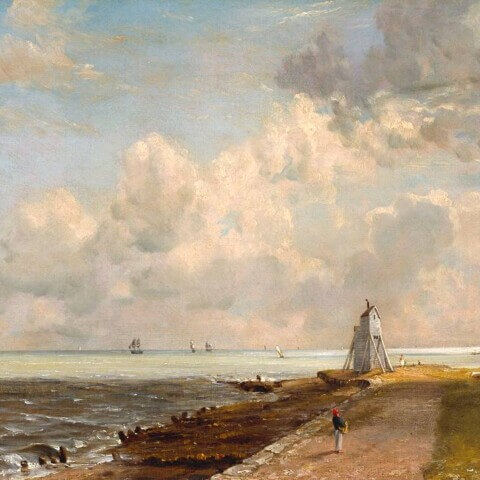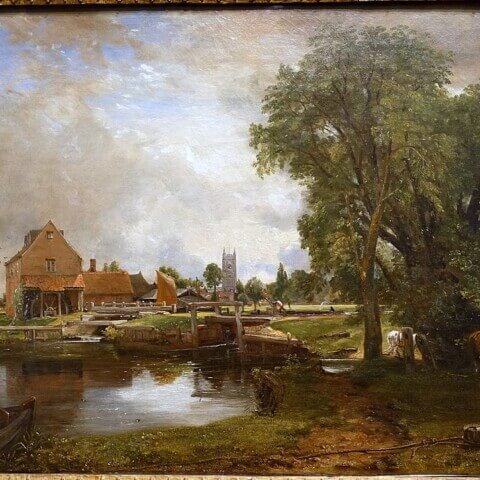John Constable

John Constable (1776-1837), a quintessential British Romantic artist, transformed landscape painting with his pastoral scenes imbued with meticulous observation and emotional intensity. Born in East Bergholt, Suffolk, into a wealthy corn merchant’s family, he had early exposure to the rural settings that later significantly influenced his artwork. Rejecting the grandiosity of Neoclassical landscapes, Constable sought to capture nature’s transient moods, harnessing lighting and atmospheric effects in his ‘plein air’ sketches.
His most famous works, such as “The Hay Wain” (1821) and “Dedham Vale” (1828), are remarkable for their vivacity and authenticity, celebrating England’s countryside in an innovative, naturalistic style. Although recognition in his homeland came late, with election to the Royal Academy in 1829, Constable’s influence was profound on the Barbizon School in France, foreshadowing Impressionism.
A prolific painter, sketcher, and draftsman, Constable’s love for his native Suffolk, known as ‘Constable Country’, is a recurring theme in his art. His evocative representations of the ordinary rural life transcend the simplistic, capturing profound emotional resonance. Today, John Constable’s work remains emblematic of Romanticism’s homage to nature and subjective emotion, an enduring testament to his belief that painting is “but another word for feeling.”
- 1
- 2
